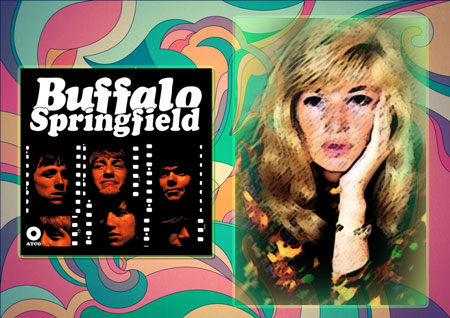Page 1 Page 2 Page 3 Page 4 Page 5
I set her turntable needle down on the appointed cut, stood close to the speakers with Gretchen, and awaited her reaction as the familiar melody, carried only by Neil’s voice and piano, wafted into the room. Watching her expression, I hoped for joy, even gratitude. Instead she grimaced, then yanked the needle off the record, with a terrifying scratchy sound.
“That really sucks! I don’t want that on my stereo. Sounds like it was made with a cheapie Kresge’s tape recorder.”
“Of course it does! Someone in the audience recorded it illegally. I thought you wanted to hear it without strings.”
“Not like that.” Then Gretchen walked to a mirror and played with her long blond hair, while I dragged the damaged record and my damaged ego back onto Broad Street.
Our relationship soon drifted back into its exciting, dizzying realm of thrilling, if distant, encounters, and, within a couple weeks of the “Maid” disaster, I hatched yet another brilliantly-pathetic plan: Take her to Cooperstown, N.Y., blissful, panoramic, Norman Rockwell village and home to the Baseball Hall of Fame. With the first woman in my life who knew Honus Wagner from Leon “Daddy Wags” Wagner.
I popped the question after one of our long “hang-outs” as the sun rose over Broad Street. “Cooperstown,” she exuded, “Fuck yeah.”
Fuck yeah it was. I took a couple days off from my paper, we hopped into my car, and off we motored to upper New York State, Gretchen making wonderfully sophomoric remarks about my stick-shift VW magic, until I insisted that we stay overnight at a motel even though we could easily have made the drive in one day.
It wasn’t love, but it wasn’t bad. We were groggy, laughing, and satisfied as we reached the little town of Cooperstown, something like Oz in the distance if you love baseball.
We walked, arm-in-arm but never hand-in-hand (a line she would not cross) down sunny streets lined with souvenir-and-sandwich shops, up to the doors of wonder, to the museum I never tire of. If you’ve never been, and you love baseball, go. If you don’t love it, screw you.
Or so Gretchen said as we walked through the exhibits (“Babe Ruth’s jockstraps through the years, man. Notice how they got bigger when he moved from pitcher to hitter?”) and on to my favorite spot, the section where players voted into the hall are exalted on bronze plaques. This is the place where the rubber hits the road—or where everyone else I’ve visited with hits the road without me. I just can’t leave: The very idea that someone’s lifetime accomplishments in a field with so few members at all, let alone stars, are summarized forever, well, I can’t walk away. Have to read them all.
But just as I got to Ruth’s—Greatest drawing card in the history of baseball. Holder of many home run and other batting records. Gathered 714 home runs in addition to 15 in World Series—I noticed that Gretchen had disappeared. The devil over my shoulder said, “Keep on keeping on here,” but the angel, well, you know.
I wandered past tow-headed kids and their stoic-looking dads, until, just outside the plaque room, there was Gretchen, crying on a bench.
I stopped for a moment before advancing, thinking all kinds of inappropriate thoughts.
‘Cause if she was a friend, of course I’d know to join her, see what was wrong, figure, as I did, that something about all that memorializing must have triggered some sad stuff. And if she was a wife, or an honest-to-goodness girlfriend, ditto.
But what of what we are? And before I looked at her again, I envisioned my own plaque: Claims he grew up in crazy times, a teen in the Sixties, took all the dope and got wild with all the girls. Empty boasts. Really, he wants love, one-on-one. Set no records
Well, of course I couldn’t hold back. I sat next to her, wrapped my arms around her. “Guess I should have thought about you a little more, Gretchen. Guess that room can be a little spooky.”
She shook free from my arms, leaned against me, sobbed some. Stood up.
“Ready to split, man. Too much like a funeral home in here.”
Suffice it to say there were no funny remarks about my stick-shifting on the long, long, one-lane road out of paradise. I stayed silent, until I didn’t.
“Gretchen, I just gotta say it: What’s the deal with the Jacks? Are they boyfriends? Am I a boyfriend? Do you…”
“Wanna go ‘steady,’ man? Not me. Not now. Maybe not ever. I like what we have, thought you did, too, but that’s as far as I go. You and I, we have the Phillies, Neil Young, and me and Jack, we love to hike, and Jack, the other Jack….”
“I get the picture.”
“Yes, we see,” Gretchen sang, paraphrasing the Shangi-Las’ “Leader of the Pack.”
And yes, I guess I did. She took me to steamy places I’d never been, with an independent zing that both drew and kept me at bay, yet something about the whole deal didn’t sit well.


